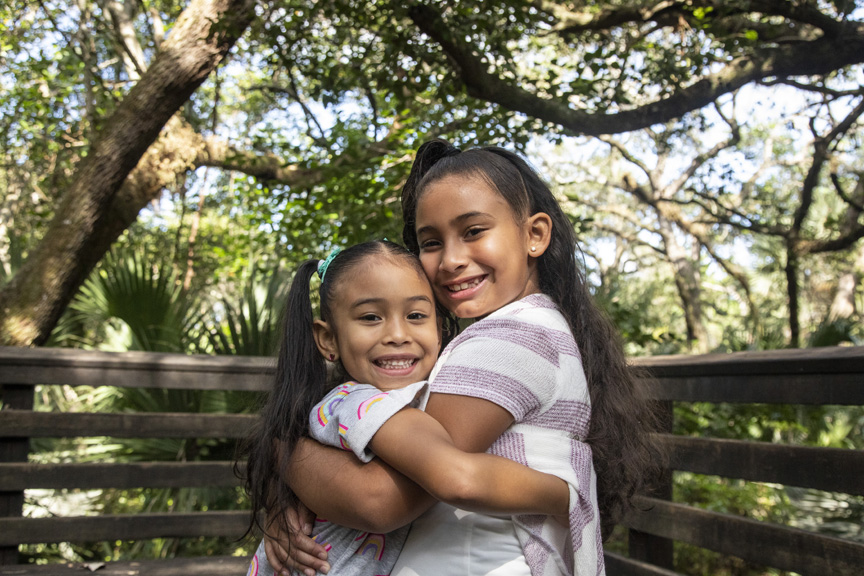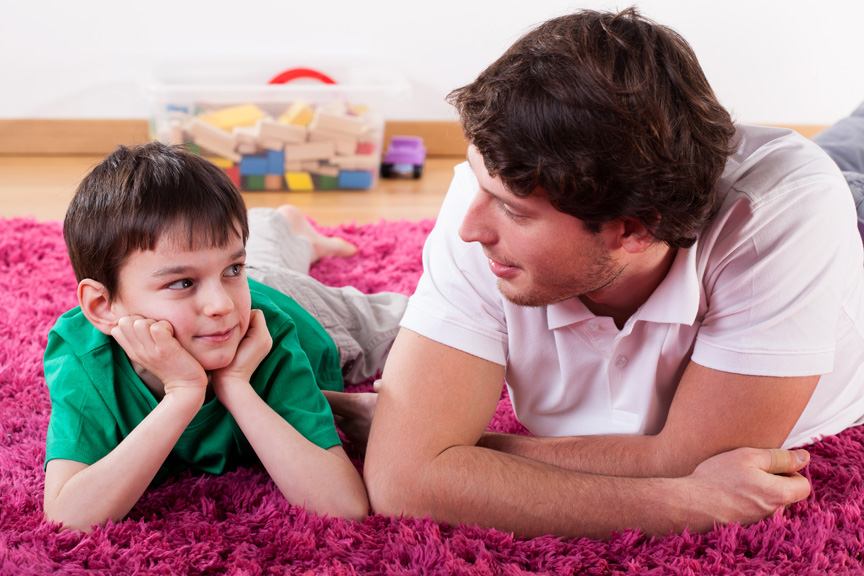Watch this video for expert advice on not expecting too much of yourself.
Watch this video on how to address sibling rivalry.
For more tips, see expert advice below.
Cooling cabin-fever tensions
There are ways to adjust when everything is turned upside down and inward, according to local experts. And the first step is to remain centered.
Humans thrive on predictability, so focus on what’s within your control, says Stephanie De La Cruz, clinical director for Center for Child Counseling in Palm Beach Gardens.
“How can we take advantage of what’s already in place to help us as caregivers?” she asks. “Establish routines and schedules. Model to your children how to be safe – simple practices, like how to wash their hands or clean surfaces.”
Parents should rely on their individual strengths to manage change, says Ali Cunningham Abbott, associate professor at Lynn University in Boca Raton.
“Most people have faced hardships, and they should think about what helped them during that time,” she says.

Compassion, not perfection
Although a multitude of planners and timelines may be available, regard them as guidelines, not rules. Incorporate what works for your family, De La Cruz says.
Compassion, understanding and flexibility – not perfection – are the goals.
“Although we may not be able to master the math problems or the science questions, we can model how to handle stressful situations,” she says.
Tips to staying positive
- Be intentional about your wellness. Need to get away? Plan a mini spa retreat in your shower with music and scented soaps.
- Develop a gratitude practice. In the morning, spend a few minutes acknowledging what you’re grateful for. Before bed, reflect on the day’s highlights.
- If you’re struggling, reach out to local telehealth resources or call 2-1-1, a local 24-hour helpline and referral service. Other mental wellness resources are available on the EveryParentPBC.org website and in the EveryParent app.
For more tips on parenting strategies, sign up or log in to EveryParent below.
Gratitude brings joy
Children and teens who are more appreciative of life’s gifts – such as friendship, health and safety – are happier people, according to a study in the Journal of School Psychology.
Parents can foster stronger mental wellness by encouraging their children to be grateful, humble and more aware of intangible joys.

Develop gratitude
Focusing on the little things is a great way to develop gratitude in your child, says Joan Kieffer, director of Center for Child Counseling’s school-based mental health program in West Palm Beach.
“Children should be encouraged to express enjoyment in experiences rather than simply in things like toys,” she says. “You can help them by modeling behaviors and phrases. You can say, ‘Aren’t we so lucky to feel the warm sun today?’ ”
Encourage little joys
Finding joy in small things returns us to our natural state of joy and happiness, says Pablo del Real, director of mindfulness education, The Way in Delray Beach.
“Joy is knowing that I already have more than enough conditions to be happy,” he says.
Try mindfulness
It’s easier to be aware of those little joys when you’re mindful of the present. Many techniques can help center children and control their emotional responses, especially those struggling with fear, anger and anxiety, Kieffer says.
“Breathing is No. 1,” she says. “All children should be encouraged to slow down and concentrate on their breathing. Counting in for five, then out for five can help young children follow along.”
For another mindfulness exercise, close your eyes and imagine holding an orange. Breathe slowly in and out, and feel its skin. What does it feel like? How does it smell?
“This exercise brings the intense focus of the mind onto one small object that is manageable for the child to explore,” Kieffer says.
For more tips on parenting strategies, sign up or log in to EveryParent below.
The beauty of boredom
Now more than ever, developmental experts are advocating playtime, free time and down time. Even boredom can be beneficial, they say. Down time, particularly without screens, is essential for children of all ages to rest and take a break from the daily stress of school and hectic schedules.
Refresh and reset
Everyone needs time to refresh and reset, particularly children, says Renée Layman, CEO of the Center for Child Counseling. “There are many valuable lessons in down time, often coming from feeling bored. Yes, it’s okay not to rescue your kids from boredom.”
Boredom can spark the imagination, inspire daydreaming and spur searching inward for entertainment.
“Kids will increasingly learn to rely on themselves, becoming more independent. That’s a parenting win!” Layman says. But prepare to deal with a bit of whining at first.

Squeeze in breaks
During the school year, she suggests squeezing in unstructured family time a couple of times a week — no screens or phones. “Remember, you are the role model for your child. Just play.”
Playtime, especially for younger children, boosts healthy growth and development.
How to unplug
Structure and routines can help parents and children. As a family, come up with a schedule that leaves room for some down time. Warning: coaxing younger children to unplug from their devices can take a little extra ingenuity.
"I'm only saying this because my child is too young to read, but I've used some subtle Jedi mind tricks to reduce his amount of screen time,” says Leslie Streeter, a Palm Beach County mother. “He has a tablet that he usually uses only when he's falling asleep or having quiet time. I just try to not let it charge past 30 percent — or 15 percent if he's on his way to bed.”
For more tips on parenting strategies, sign up or log in to EveryParent below.
See More Articles Like This!
The EveryParent app and website are free resources for Palm Beach County families.
For more helpful parenting info just for you, sign up for EveryParent today!
